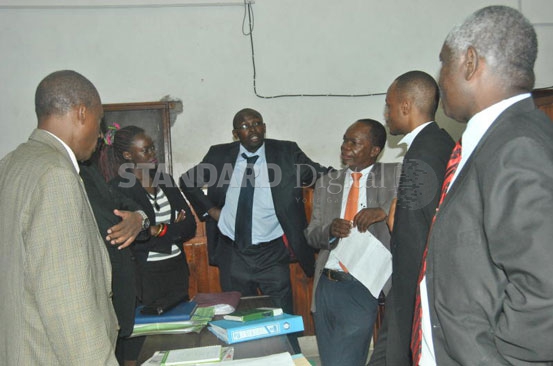×
The Standard e-Paper
Kenya’s Boldest Voice

Lawyers for the 26 former Kenya Navy soldiers serving life terms for allegedly deserting Mtongwe Naval Base in 2007 and 2008 have launched appeals at the High Court in Mombasa with scathing attacks on the conduct of the military tribunals that convicted them.
The former servicemen and an officer are serving life jail terms at Shimo la Tewa Prison in Mombasa following their conviction by three military courts between March last year and early this year.